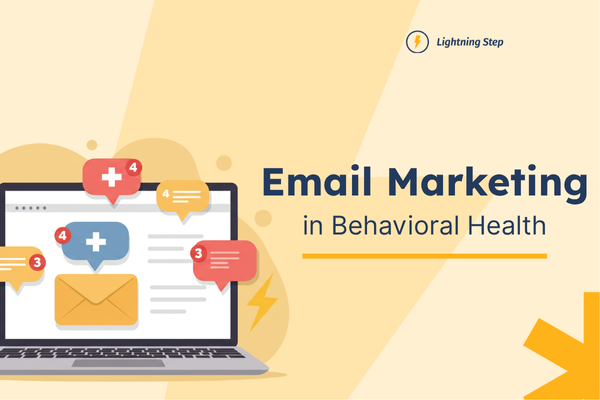
Behavioral health providers face unique challenges in patient engagement, retention, and communication. Unlike other healthcare fields, maintaining a strong relationship with patients requires ongoing follow-ups, appointment adherence, and continuous support. A well-structured email marketing strategy can help behavioral health practices enhance communication, improve patient retention, and ensure timely interactions.
By leveraging data-driven email marketing strategies, providers can personalize communication, automate essential reminders, and optimize engagement. This article explores how behavioral health professionals can use email marketing effectively, highlights key industry statistics, and provides actionable best practices to ensure success.
Email marketing is one of the most effective and cost-efficient communication tools for healthcare providers. In behavioral health, where trust and consistent engagement are crucial, strategic email campaigns can:
Email marketing has proven to be a high-impact tool for patient engagement. Studies show that effective email marketing strategies can significantly improve patient retention and communication. Research indicates that:
Behavioral health providers struggle with appointment adherence, as patients often cancel or forget sessions, disrupting treatment progress. Privacy concerns further complicate communication, requiring HIPAA-compliant email marketing strategies that balance security with engagement. Mental health stigma can also prevent patients from staying connected, leading to inconsistent follow-ups. Additionally, many practices have limited administrative resources, making it difficult to maintain regular patient communication.
By leveraging automated reminders, personalized emails, and secure messaging, providers can overcome these challenges and improve patient retention.
To maximize patient engagement and retention, behavioral health providers must implement effective email marketing strategies that match patient needs.
Segmentation allows behavioral health providers to send targeted, relevant emails based on patient needs. New patients benefit from welcome emails introducing services while returning patients receive ongoing care updates. Email marketing strategies can also be adjusted based on treatment type, ensuring that those managing anxiety, depression, or substance use receive content that resonates with their specific needs. Identifying and re-engaging inactive patients through personalized outreach can strengthen engagement and retention.
Automated emails simplify communication and improve patient retention by ensuring timely interactions. Appointment reminders help reduce cancellations and last-minute no-shows, while post-session follow-ups encourage patients to reflect on their progress. Periodic check-ins between appointments keep engagement levels high, and monthly newsletters featuring mental health tips and resources provide continuous support. By integrating automation into their email marketing strategies, providers can streamline operations and enhance the patient experience.
Personalized emails create a stronger connection between providers and patients, making communication feel more meaningful. Addressing patients by name, referencing past sessions, and acknowledging treatment milestones fosters a sense of trust and engagement. Adjusting resources to match patient needs, such as coping strategies for stress or tips for managing anxiety, reinforces the provider’s role as a supportive guide in their mental health journey. With data-driven personalization, behavioral health providers can improve response rates and encourage long-term participation in care.
Healthcare email marketing must comply with HIPAA regulations to protect patient information. To ensure compliance:
To maximize engagement and retention, behavioral health providers must implement data-driven email marketing strategies that encourage patient interaction while maintaining clarity and relevance.
By applying these best practices, behavioral health providers can foster consistent and meaningful patient engagement through effective email marketing.
Email marketing is a powerful, data-driven tool that behavioral health providers can use to enhance patient engagement, reduce appointment no-shows, and strengthen ongoing communication. By leveraging segmentation, automation, and personalization, providers can create meaningful, HIPAA-compliant connections with their patients while improving treatment outcomes.
For those looking to optimize their email marketing strategy, incorporating key healthcare email marketing statistics and best practices can drive higher engagement and improve overall patient care.



